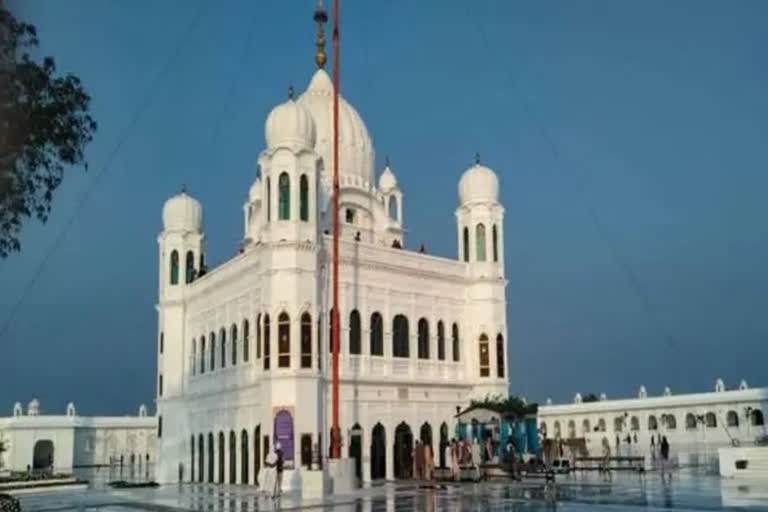New Delhi: The Centre on Tuesday decided to re-open the Kartarpur Corridor from tomorrow, November 17 ahead of the Gurupurab celebration on Nov 19.
The reopening of the Kartarpur corridor can be seen as a positive development but can the reopening of the Kartarpur Sahib Corridor mend the India-Pakistan relations as tension continue to simmer between both sides on several issues?
Speaking to ETV Bharat, Dr Suvro Kamal Dutta, a foreign policy expert said, "Kartarpur Corridor has got a significance for the Sikh community. It has a great significance not only for India but also at the global level. Therefore, the Kartarpur corridor needs to reopen. The Sikh pilgrims should be able to go to Kartarpur sahib without any hassle."
"But a lot of responsibility lies in the hands of Pakistan. Pakistan is a terrorist state and we know the reality of how it spreads terrorism across the globe. And we have seen the way Pakistan exports terrorism and targets the Hindu and Sikh community, forcefully converting and killing them," he said.
In recent years, there have been ample incidents of Gurudwaras and temples being attacked in Pakistan. These are the major issues that need attention. "Previously, because of security issues in Pakistan and COVID 19, Kartarpur had to be closed", Dutta pointed out.
He said that the Indian government has no problem in opening up the Kartarpur Sahib Corridor and there is a full proof security mechanism on the Indian side.
A lot of responsibility lies on the Pakistani side, he reiterated.
When asked if the Kartarpur corridor can play a role in bringing thaw in the already strained relations between India-Pakistan, Dutta opines that there would be no improvement in the relations between both sides because Pakistan will continue to indulge in terrorist activities against India and play dirty games especially in relation to the Union territory of J&K.
"There is a clandestine mechanism working between the ISI, the Pakistan-Taliban and all other terrorist organisations. And Pakistan will continue to do so", Dutta said.
He underlined that the reopening of the Kartarpur corridor has morality and symbolism attached to it but "I don't think so there will be any significant change in the Indo-Pak relations. For the relations to improve, Pakistan needs to address the issue of terrorism and take action against the mastermind of the terror attacks", he added.
On Tuesday, November 16, Home Minister Amit Shah took to Twitter and said, "The nation is all set to celebrate the Prakash Utsav of Shri Guru Nanak Dev ji on 19th of November and I am sure that PM @NarendraModi govt’s decision to reopen the Kartarpur Sahib corridor will further boost the joy and happiness across the country".
Earlier this month, Ministry of External Affairs spokesperson Arindam Bagchi, said that the Kartarpur corridor was shut in March 2020 in the wake of Covid-19. A limited movement was happening via the Wagah-Attari border. Both countries are following the protocols. Given the importance of Gurupurab and keeping religious sentiments in mind, we have decided that a jatha of around 1,500 pilgrims will be going via Wagah ICP between November 17-26, to Pakistan, Bagchi added.
On Monday, 15 November, a delegation of Bharatiya Janata Party (BJP) leaders from the state of Punjab and Delhi met Union Home Minister Amit Shah in New Delhi to discuss the reopening of the Kartarpur Corridor.
What is Kartarpur Corridor?
India and Pakistan signed the longstanding Kartarpur Sahib Agreement on October 24, 2019, after months of negotiations. Kartarpur corridor was seen as one of the major development in the history of Pakistan-India relations that has for years undergone ups and downs.
The Kartarpur corridor allows pilgrims to cross the India-Pakistan border without the requirement of a visa so that they can visit the Kartarpur Sahib gurdwara in Pakistan. The Kartarpur Sahib gurdwara is the final resting place of Guru Nanak Dev, the founder of Sikhism. It links the Kartarpur Sahib gurdwara in Pakistan to the Dera Baba Nanak shrine in the Gurdaspur district in India.



